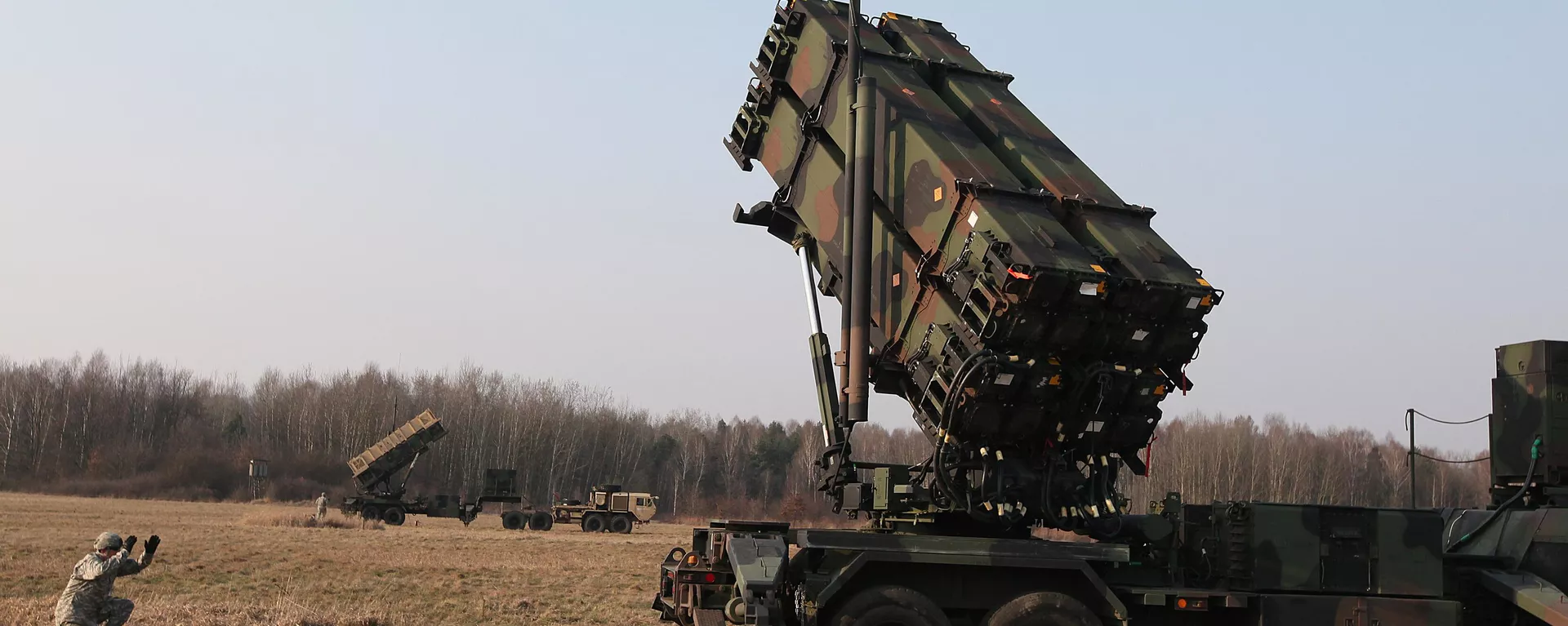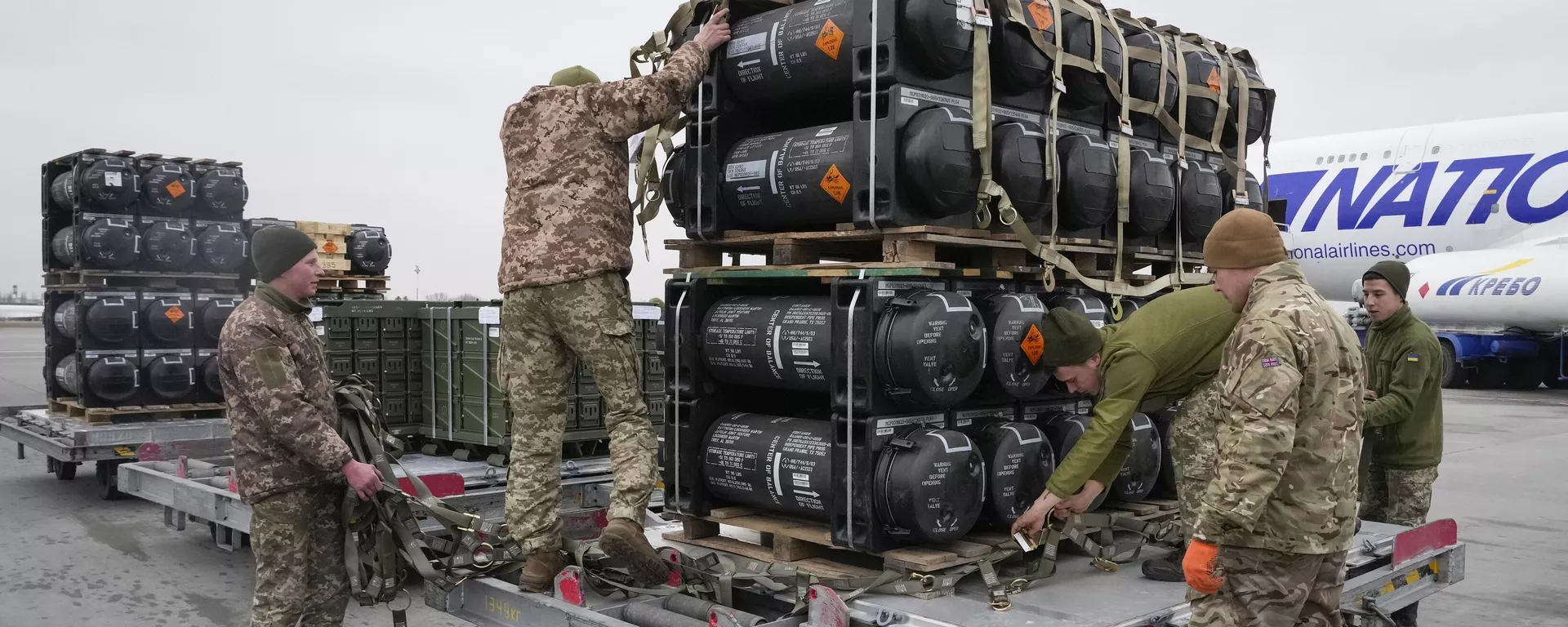MOSCOW, December 29 (Sputnik) - The total value of US military aid to Ukraine decreased on the year to around $19.488 billion by the end of 2024, with Washington adjusting its strategy to build Kiev’s defense capacities, especially air defense systems, a Sputnik analysis of official figures from the US Department of Defense (DoD) showed.
Although the US Congress delayed approving the first military aid package to Ukraine this year, which was announced only on March 12, it did not impact later assistance, as the Biden administration rushed to allocate funds to Kiev before Donald Trump's inauguration as president on January 20.
When the Congress finally passed the Ukraine Security Supplemental Appropriations Act 2024 on April 23, the new law included about $60 billion worth of security supplemental package for Kiev, a DoD report said at the time.
The Biden administration wasted no time by announcing additional military aid packages for Ukraine in the next few days, including $1 billion package through the Presidential Drawdown Authority (PDA) on April 24 and $6 billion package through the Ukraine Security Assistance Initiative (USAI) on April 26.
Unlike the PDA, which offers Ukraine existing weapons from the DoD’s inventory, the funding through USAI was often used to purchase new weapons for Kiev from major defense contractors. The delivery of new weapons through USAI is usually slower compared to PDA, because it could take the defense contractors months or even years to fulfill the orders.
In total, the US has announced 18 tranches of military aid worth around $6.4 billion to Ukraine through PDA since the beginning of 2024.
In addition, the Biden administration has provided 5 tranches of military aid worth around $13.088 billion to Ukraine through USAI in 2024.
As a result, the total value of US military aid to Ukraine, through both PDA and USAI, reached around $19.488 billion by the end of this year.
In comparison, US military aid to Ukraine was about $24.7 billion in 2023, including $12.95 billion through PDA and $11.75 billion through USAI.
After the full escalation of the military conflict in Ukraine in February 2022, the US provided about $19.875 billion worth of military assistance to Kiev until the end of that year, including $12.725 billion through PDA and $7.15 billion through USAI.
The DoD usually publishes a detailed list of weapons the US provided to Ukraine through a fact sheet, whenever new military aid package for Kiev is announced. The latest DoD fact sheet released on December 12, 2024, has several notable changes compared to the one from last December.
Although the value of weapons supplied to Kiev through PDA fell to only $6.4 billion this year, compared to $12.95 billion in 2023 and $12.725 billion in 2022, the total list of supplied military aid hinted at the US adjusting its military aid strategy to help Ukraine build its defense capacities, especially its air defense systems.
Most of the new aid packages focused on buying additional ammunition, such as interceptor missiles, for the National Advanced Surface-to-Air Missile Systems (NASAMS) and the Patriot air defense systems.
The number of Patriot air defense batteries supplied to Kiev has increased from one to three, the number of Stinger anti-aircraft missiles increased from "more than 2,000" in last December to "more than 3,000" as of December 12, 2024.
From providing "more than 2,000,000 155mm artillery rounds," that figure jumped to "more than 3,000,000 155mm artillery rounds" as of December 12, while the number for 152mm artillery rounds jumped from "more than 200,000" to "more than 400,000."
The number of Bradley Infantry Fighting Vehicles rose from 186 by last December to "more than 300" as of December 12, while the number of M113 Armored Personnel Carriers increased to "more than 900" from 300 by last December.
In addition to sending greater numbers of the previously provided weapon systems to Ukraine, the United States also armed Kiev with new weapons, including the longer-range ATACMS missiles, this year. The Biden administration’ controversial decision to allow Ukraine to strike Russian territory with US-supplied weapons, including the ATACMS missiles, in late November raised concerns over further escalation of the ongoing military conflict.
In late November, Russian President Vladimir Putin announced that Ukraine struck facilities in Russia's border regions of Kursk and Bryansk earlier that month using US-supplied ATACMS missiles and UK-supplied Storm Shadow missiles. Putin said that in response, Russia successfully test-fired the nuclear-capable Oreshnik ballistic missile on November 21, hitting a Ukrainian defense industry complex in the city of Dnepropetrovsk, also known as Dnipro. The Oreshnik missile system was tested in combat conditions, in a nuclear-free hypersonic configuration.

 6 days ago
6
6 days ago
6









 We deliver critical software at unparalleled value and speed to help your business thrive
We deliver critical software at unparalleled value and speed to help your business thrive






 English (US) ·
English (US) ·